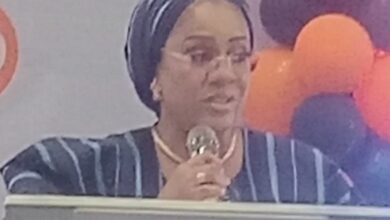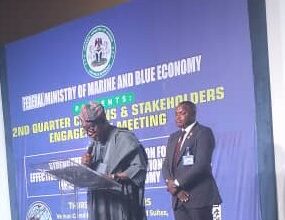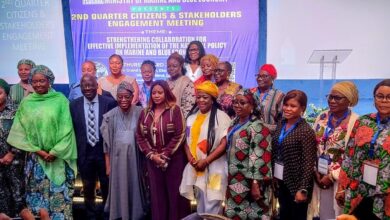Taiwo Afolabi decries unsavoury state of maritime infrastructure, wants more government attention.
Taiwo Afolabi decries unsavoury state of maritime infrastructure, wants more government attention.

The Chairman if SIFAX Group, Dr. Taiwo Afolabi has called on the federal government to concentrate on non oil export as the source of budget financing since it has become the mainstay of the economy.
He made the call in his welcome address on Friday at the 5th Taiwo Afolabi Annual Maritime (TamAAM) held in Lagos.
He maintained that the maritime industry is grappling with some issues such as infrastructural deficit, foreign exchange bottlenecks, insecurity on the waterways, low level of technology adoption and deployment as well as inconsistent policies, among others.
The Group Chairman who was.represented at the event by Bode Ojeniyi, Group Managing Director, Sky Capital, added that the issues have largely limited the ability of the sector to contribute significantly to the country’s Gross Domestic Product (GDP).
Text of the address, “I am extremely delighted to welcome you all to the 5th edition of the Taiwo Afolabi Annual Maritime Conference holding today. After three years of not being able to organise this programme occasioned by the COVID-19 pandemic and the ASUU strike of 2022, it is a good feeling having you join us to take another look at developments in our beloved maritime industry.
“The TAAM Conference, a partnership between the Maritime Forum of this university’s Law Faculty, was birthed to serve as a platform where key issues that will engender innovations and practical ideas needed to sustain growth of the maritime sector are discussed and workable solutions are proffered to challenges confronting the sector.
“It is without doubt that the maritime industry in Nigeria is grappling with various issues including infrastructural deficit, foreign exchange bottleneck, insecurity on our waterways, low level of technology adoption and deployment as well as inconsistent policies, among others.
“These issues have largely limited the ability of the sector to contribute significantly to the country’s Gross Domestic Product (GDP). If well harnessed, the maritime industry has the potential to become a major revenue earner for the country, particularly with the declining oil revenue.
“Ladies and gentlemen, the lessons of the last few years as a nation should not be lost on us.
“The non-oil sector is increasingly becoming the mainstay of the country’s economy. We have funded our national budget in the last few years majorly without proceeds from oil but from other sectors.
“The days of our over reliance on oil is behind us now and it’s about time we focused on transitioning from an oil-dependent economy to non-oil reliance. The maritime sector, I can say without any fear of contradiction, will play a crucial role in this economic transitioning if more attention is committed to the industry.
“This year’s theme – The Maritime Roadmap Project: Making Nigeria A Leading Maritime Nation In The World – is an effort in this direction.
“Looking carefully at the theme, you will discover that it is an ambitious one, as we are looking beyond positioning in Africa. Judging by the potentials of the industry, we are of the opinion and belief that Nigeria’s maritime industry can rank among the best in the world. It will only take careful planning, progressive policies, generous funding, enabling environment, friendly economic policies, manpower development and massive infrastructural development.
“A good foundation for the sustainable growth and positioning we earnestly crave has been laid. The sector has professionally-run government agencies including the Nigerian Ports Authority (NPA), Nigerian Maritime Administration and Safety Agency (NIMASA) and the Nigerian Shippers Council that have contributed significantly to the growth that we have.
“In 2006, the Federal Government opened up the industry for private sector participation, especially in port terminal management. These concessionaires have made a mark in the last 17 years through the deployment of technology, investment in infrastructure and facilities and topnotch business strategy that have changed the face of service delivery at our ports.
“The developments of new ports and inland container depots across the country, for example, the Lekki Deep Seaport and the Dala Inland Container Depot in Kano which our company, SIFAX Group serves as technical and business consultant for, is a testament of the abiding faith of investors in the industry.
“Linking the seaports to dry ports located at hinterlands with rail lines which is ongoing will certainly be a game changer if this effort is sustained.
“It’s not only about the port operations or cargo movements, maritime security is another critical aspect that we can’t deny has improved. The Nigerian Navy must be commended for curbing the incessant piracy issue on national waters and around the Gulf of Guinea which injures business flow.
“Despite these wins, we can’t deny we have a lot to attend to,” he submitted.
v







